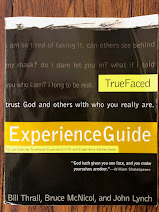The story...
It was a hard and long process for me to form boy-girl relationships and they were even harder and longer to end. Maybe I was expecting a level of love and attachment that wasn't reasonable or good for either of us. How did I set expectations for my "true love" relationship? I don't know the answer. It's possible that they were good for an ideal world; yet, this world, and the people who work out their lives here, aren't ideal.
Do I need your help and approval in order to be okay? If I say yes, then my level of "okayness" is tied to your "okayness" with both you and me - ugh. If I say no, then I have the possibility of being okay with me and freeing you to be okay too. Might we offer others the freedom and dignity to live out their own lives?
A helpful model came to me from Donald Miller's book "Scary Close," (pp. 206,207). He illustrates a relationship with three floor pillows: my pillow, our relationship pillow, and your pillow. The only person who steps on your pillow is you - your soul - same for my pillow. Both of you can step on the middle pillow because you agreed to be in a relationship.
"Codependency happens when too much of your sense of validation or security comes from somebody else . . . What goes on in the other person's soul is none of your business. All you're responsible for is your soul, nobody else's. Regarding the middle pillow, the question is, 'What do I want in a relationship?' . . . What's going on in other people's minds is none of your business."
What would the only church in town look like if they focused on: the gospel; spirit/Spirit relationships; learning and living together; and not on changing other people's minds? Might they actually work out their own right relationship with God, in Christ, versus attempting to change other's minds related to the theology that "we" believe in?
Just for today...
"I wasn't really admitting my powerlessness or I wouldn't keep trying to control everyone or everything around me . . . Not my will but Your will." Courage to Change (p. 240)
"...my skill in detaching rested on my ability to accept my own thoughts and feelings and to become comfortable with myself . . . Because my fate - my very life - was no longer tied directly to theirs, I was able to accept them for who they were and to listen to their ideas and concerns without trying to exercise control." Hope for Today (p. 240)
"We are free to refuse to be hurt by a spiteful remark or malicious action. So the whole matter really rests with us. The choice of accepting or rejecting an offense is ours alone . . . What can words do to me unless I take them to heart?" One Day at a Time (p. 240)
"Body buried; Spirit raised - Where's the key; We or me?" Am I a Poet?



No comments:
Post a Comment